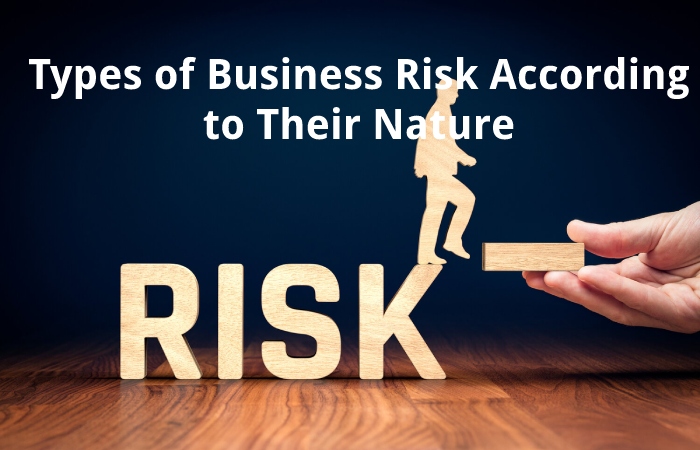Table of Contents
Risk of Entrepreneurs
Business risks of entrepreneurs are known as all business activity carries an implicit risk. Some are to a greater extent than others, but none are exempt. Risk is part of any business area because it defines it in a certain way and helps set limits.
At the corporate level, risk is the uncertainty that arises while achieving an objective. These are, in essence, circumstances, events, or adverse events that prevent the normal development of a company’s activities and that, in general, have economic repercussions for those responsible.
What is Risk?
Modern economic practice has recently acquired concepts such as risk characteristics, unstable situations, risk analysis, and risk minimization. Risk is the likelihood that anticipated revenue or resources would be lost.
What is Business Risk?
Being an entrepreneur and operating a business involves accepting risk. Business owners are exposed to two main types of risk: financial risk and business risk. Financial risk, the chance that a company will not generate enough revenue to pay creditors and meet other financial obligations, depends on the amount of debt a business has. Business risk, however, is independent of a company’s level of debt and refers to the business operations themselves.
Types of Business Risk According to Their Nature

The types of business risk, according to their nature, can be the following:
Financial risk: It is the risk inherent to the company’s financial management. It may be an exchange rate risk, a risk that the company does not have sufficient liquidity to meet its obligations in the short term ( liquidity risk ), or risk of rising interest rates, among others.
Environmental risk: It is related to the best company’s environment, and it can refer to nature. For example, when mining companies use a deposit, facing the risk of a landslide due to extractive activity. Also, this type of risk can be linked to social; for example, it may be that the company faces opposition from the residents of the area where it seeks to build its new factory or operations center.
Political risk: Refers to risks related to the political environment. It can be measures taken by the authorities or the government, such as raising taxes, or actions that confront the State, such as terrorist attacks.
Legal risks are linked to the regulatory framework under which the company operates. For example, it may be that stricter standards impose on food marketing, with which a company in that area may have to invest in adapting to the new demands. These risks usually go hand in hand with politicians.
Characteristics of Risk of Entrepreneurs
- The potential loss express in money.
- The probability that the risk will occur.
- The level of risk is the relationship between the cost necessary to prepare and apply the risk and the potential loss. If the result is greater than 1, the risk consider unreasonable.
- The legitimacy of the risk: this value determine by the probability that the risk is within limits established by law and regulations.
There is also always a risk associated with human life. It can cause by the external environment or by the individual himself. Risk is the probability that a hazard will occur, causing specific consequences and undetermined damage. An example of this is the risk of disease.
External and Internal Risks of Entrepreneurs
The types of business risk, depending on whether they are external or internal company risks, can be classified as follows:
External risk is related to the economic system, that is, to the context or the market in which the business activity carry out. For example, a systemic risk could be a severe economic crisis that leads the country into a recession.
Non-external risk: It is intrinsic to the organization. For example, the probability that due to poor management, management decides to make an investment that later produces losses.
Entrepreneurs Risk Management
For business risk management, what is essential, first of all, is to identify all the risks to which the organization may expose. It is necessary to take into account both external and internal factors.
Then, the firm can anticipate and cover some risks, for example, by taking out insurance. In this way, if an event such as an earthquake damages the organization’s property, the company will receive compensation from the insurer.
Main Types of Risk for Entrepreneurs

According to the Type of Activity
Risks are present in any activity. However, some imply a greater or lesser level of incidence in the activities of the companies. The first classification of them can be made in the following terms:
Systematic Risk
It refers to those risks present in an economic system or a market as a whole. Its consequences can afflict the entire commercial network, as is the case, for example, with significant financial crises from which no company can escape. Accidents, wars or natural disasters can also cause them.
Unsystematic Risk
These are the risks that derive from each company’s financial and administrative management. In other words, in this case, it is a specific company that fails and not the whole market or commercial scenario. They vary depending on each type of activity, each case, and how they manage. Internal crises or a poorly
Implemented Growth Plans are some Examples.
According to its Nature
But risks can also define in terms of their nature. It is the most widespread way to classify them. A legal or juridical risk should not manage in the same way as another of an economic nature. In this sense, the risk classification would be as follows:
Financial Risks
They are all those related to the financial management of companies. Those movements, transactions and other elements influence business finances: investment, diversification, expansion, and financing, among others. In this category, it is possible to distinguish some types:
- Credit risk.
- Interest rate risk.
- Market risk.
- Risk management.
- Liquidity risk.
- Exchange risk.
Economic Risks
In this case, it refers to the risks associated with economic activity, whether internal or external. In the first case, we are talking about the losses that an organization may supply due to decisions made within it, and in the second, they are events whose origin is external. To differentiate it from the previous item, it should note that economic risk affects the monetary benefits of companies. In contrast, financial risks involve all the assets that organizations have at their disposal.
How does Risk Affect Value?
Both business and financial risk factor into financial formulas and negatively affect value. For two identical companies, one with a higher level of risk will always be worth less than one less exposed to risk. Risk management, therefore, becomes essential to maximize the value of your business.
Risk Management
Companies must continually assess their risk exposure, identify their sources, and develop strategies to minimize that exposure. Although few small business owners can reduce their exposure to all systematic market risks, these risks are widely studied, and plenty of resources available to entrepreneurs can help them predict periodic crises and other events.
Conclusion
Entrepreneurial or business risk is the possibility that a company’s cash flows will be insufficient to cover operating expenses. Operating expenses are those a company occupies when carrying out its normal operations. Without sufficient cash flow to pay for these expenses, businesses become more likely to fail. Business risk refers to the probability of this happening and divide into two types: systematic risk and unsystematic risk.

